Introduction to Mental Health Apps
In the rapidly evolving landscape of mental health support, digital therapy tools have become increasingly relevant. The emergence of mental health apps marks a pivotal shift in how individuals seek and receive help for mental well-being. These apps, leveraging advancements in e-mental health, are revolutionizing access to therapeutic resources, making mental health care more accessible than ever before.
The Rise of Mental Health Apps
- Accessibility: One of the most significant benefits of mental health apps is their ability to provide easy access to mental health resources. These digital tools have broken down barriers that traditionally hindered people from seeking help, such as geographic location, cost, and stigma.
- Diverse Applications: From guided meditation to interactive cognitive behavioral therapy (CBT) exercises, mental health apps offer a variety of tools. They cater to a range of needs including stress relief, anxiety management, and mood tracking, making them versatile resources in mental health care.
Technological Innovations in Mental Health
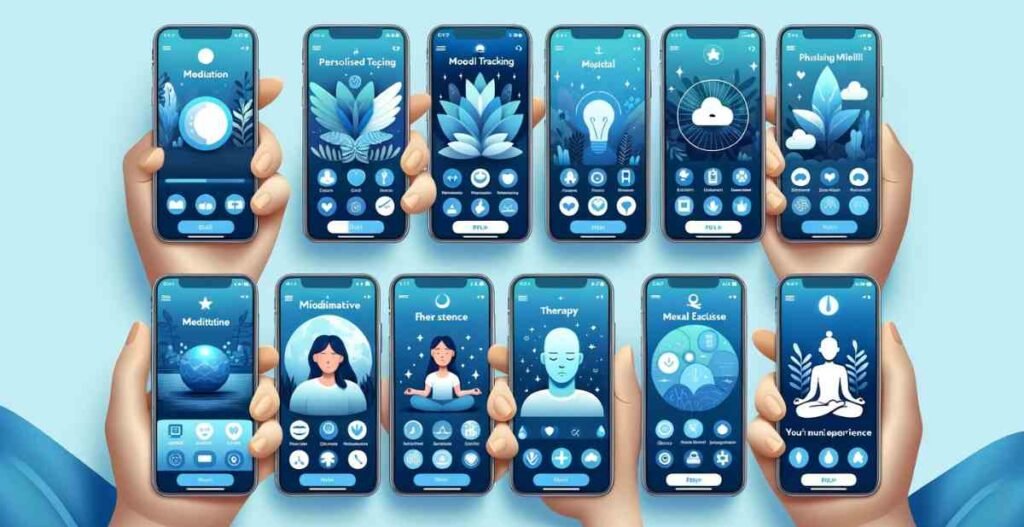
- Personalized Experience: Many apps now use advanced algorithms to offer a personalized experience to their users. This customization enhances the effectiveness of the app by aligning with the unique needs and preferences of the individual.
- Integration with Wearable Technology: The integration with wearable technology, like smartwatches and fitness trackers, allows for real-time monitoring of physiological markers of stress and anxiety. This technological synergy enables users to gain a deeper understanding of their mental states.
Challenges and Opportunities
- While the proliferation of mental health apps is promising, it also presents challenges. Ensuring the quality and effectiveness of these apps is paramount, as is protecting the user’s privacy and data security.
- Despite these challenges, the opportunities presented by these apps in the realm of online therapy tools are immense. They are not only transforming the way mental health services are delivered but also how they are perceived by society at large.
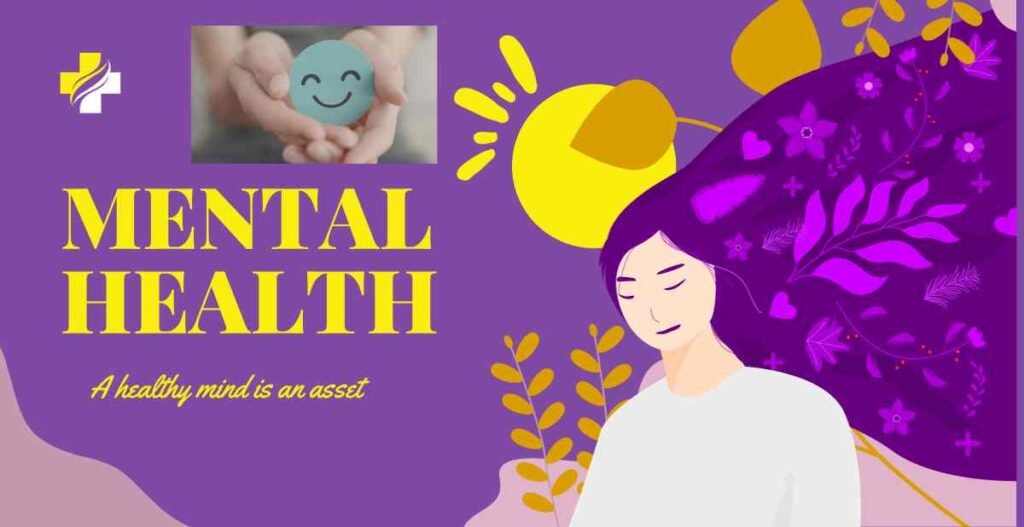
Top 10 Mental Health Apps of 2024
In 2024, the landscape of digital self-help for mental wellness has seen remarkable innovations. This part of the article delves into the top 10 mental health apps, showcasing their unique features, benefits, and how they cater to diverse mental health needs like stress relief and anxiety management.
1. Calm
- Features: Offers a range of meditation techniques, sleep stories, and calming music.
- Benefits: Helps in reducing stress, improving sleep quality, and enhancing overall mental wellness.
- User Experience: Known for its user-friendly interface and high-quality content.
2. Insight Timer
- Features: Extensive library of free meditations, music tracks, and lectures.
- Benefits: Aids in managing anxiety, fostering mindfulness, and promoting relaxation.
- User Experience: Praised for its diverse content and community features.
3. Headspace
- Features: Guided meditations, mindfulness exercises, and educational content.
- Benefits: Enhances focus, reduces stress, and improves emotional well-being.
- User Experience: Renowned for its engaging animations and structured programs.
4. Hoopla
- Features: Journaling exercises and mood tracking capabilities.
- Benefits: Encourages self-reflection and emotional awareness.
- User Experience: Offers a unique approach to mental health through creative expression.
5. Breathe, Think, Do by Sesame Street
- Features: Interactive content for children, focusing on emotional development.
- Benefits: Teaches coping skills and resilience to young users.
- User Experience: Child-friendly interface and engaging educational activities.
6. What’s Up? Mental Health App
- Features: CBT-based tools, mood tracking, and informative articles.
- Benefits: Supports teens in managing negative thoughts and improving mental health.
- User Experience: Simple layout, making it easy for teens to navigate.
7. Finch Self-Care App
- Features: Habit tracking, mood logging, and self-care reminders.
- Benefits: Ideal for young adults, especially in managing college stress.
- User Experience: Fun and engaging, with a focus on building healthy habits.
8. Happify
- Features: Gamification of mental health exercises and tracking progress.
- Benefits: Helps in overcoming negative thoughts and increasing positive emotions.
- User Experience: Interactive and enjoyable, with a variety of activities.
9. BetterHelp
- Features: Online therapy sessions with licensed therapists.
- Benefits: Provides professional support for a range of mental health issues.
- User Experience: Convenient and confidential access to therapy.
10. Talkspace
- Features: Messaging-based therapy and psychiatric services.
- Benefits: Offers continuous support and medication management.
- User Experience: Known for its flexibility and ease of communication with therapists.
| App Name | Key Features | Main Benefit |
|---|---|---|
| Calm | Meditation, Sleep Stories | Stress Reduction, Better Sleep |
| Insight Timer | Free Meditations, Music | Anxiety Management, Mindfulness |
| Headspace | Guided Meditations | Focus, Emotional Well-Being |
| Hoopla | Journaling, Mood Tracking | Self-Reflection, Emotional Health |
| Breathe, Think, Do | Interactive Children’s Tools | Coping Skills for Kids |
| What’s Up? | CBT Tools, Mood Tracking | Negative Thought Management |
| Finch Self-Care App | Habit Tracking, Mood Logging | Stress Management for Young Adults |
| Happify | Mental Health Games | Overcoming Negative Thoughts |
| BetterHelp | Online Therapy Sessions | Professional Mental Health Support |
| Talkspace | Messaging Therapy, Psychiatry | Continuous Support, Medication Mgmt |
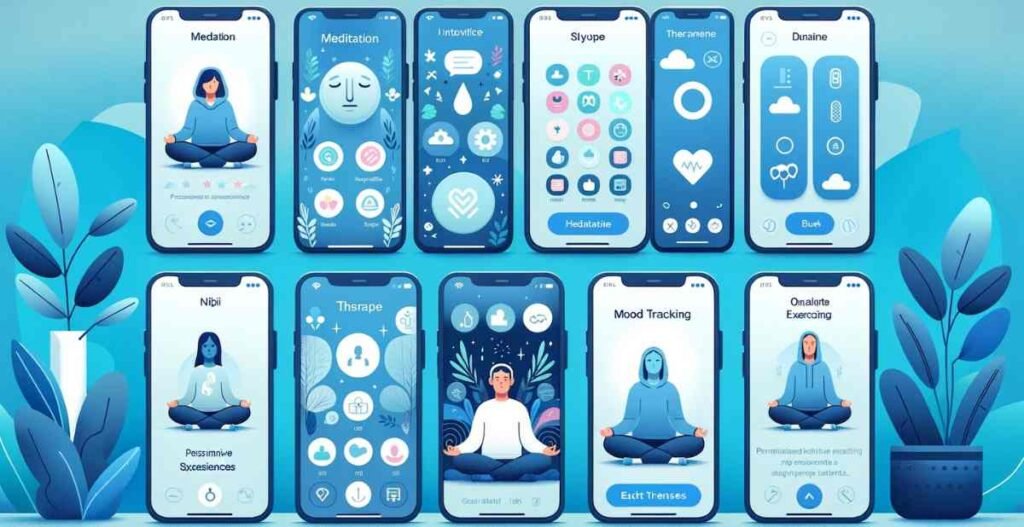
How Mental Health Apps Can Complement Traditional Therapy
In the dynamic field of mental health care, apps have emerged as significant tools. This part explores how these digital resources, which are part of the broader digital health intervention spectrum, can complement traditional therapy methods.
10 Google Translate Alternative Apps
Beyond Google Translate: These Apps Also Perform Language Translation, A Fantastic Way to Earn….
The Complementary Role of Mental Health Apps
- Enhancing Traditional Therapy: Mental health apps can serve as a valuable adjunct to conventional therapy. They offer continuous support and tools that can be accessed anytime, augmenting the therapeutic process.
- Self-Management Tools: With features like mood tracking and mindfulness exercises, these apps empower individuals to take an active role in their own mental health care.
- Accessibility and Convenience: For those unable to attend regular therapy sessions, mental health apps provide an accessible alternative or addition, breaking down barriers of time, cost, and location.
Balancing Digital and Traditional Mental Health Care
- Integration with Therapy: Many therapists now recommend mental health apps as part of treatment plans, integrating digital self-help tools with face-to-face sessions.
- Benefits and Limitations: While apps offer great tools for self-care and symptom tracking, they are not replacements for professional medical advice or therapy. They work best when used in conjunction with professional care.
User Testimonials and Expert Opinions
- Positive Feedback: Users often report improvements in managing daily stress, better sleep, and greater emotional awareness.
- Expert Insights: Mental health professionals acknowledge the benefits of these apps in fostering regular mental wellness practices, enhancing patient engagement, and providing valuable data for therapy sessions.
Pros and Cons of Using Mental Health Apps
- Pros:
- Immediate access to mental health resources.
- Personalized self-help strategies.
- Enhanced awareness of mental health patterns.
- Cons:
- Risk of over-reliance on apps for serious mental health issues.
- Variability in app quality and effectiveness.
- Privacy concerns regarding personal data.
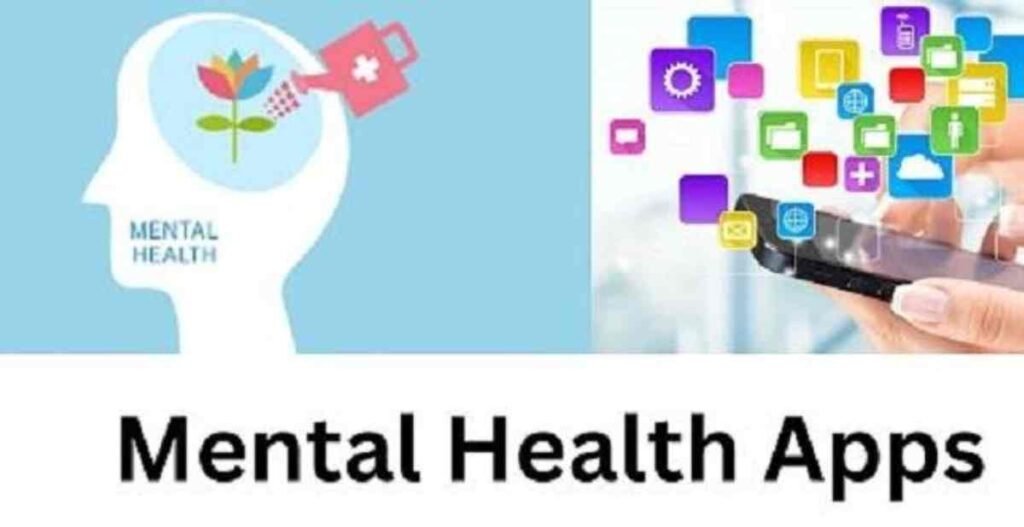
The Future of Mental Health Apps
As we venture further into the digital age, the future of mental health apps is poised for transformative changes. This part explores the anticipated advancements in this domain, addressing the potential impact on future trends, ethical concerns, and data security in mental health care.
Emerging Trends in Mental Health App Technology
- Advancements in AI and Machine Learning: The integration of advanced AI will enable apps to provide more personalized and effective mental health interventions.
- Virtual Reality (VR) and Augmented Reality (AR): These technologies are expected to play a significant role in providing immersive therapeutic experiences, enhancing the efficacy of mental health apps.
- Increased Integration with Biometric Data: Future apps may use biometric data like heart rate and sleep patterns to offer more nuanced mental health insights.
Addressing Privacy and Ethical Considerations
- Data Security: With the increasing use of personal data, ensuring robust data security measures is paramount for the future of mental health apps.
- Ethical Use of AI: As AI becomes more prevalent, ethical considerations in its use, especially regarding user autonomy and consent, will be critical.
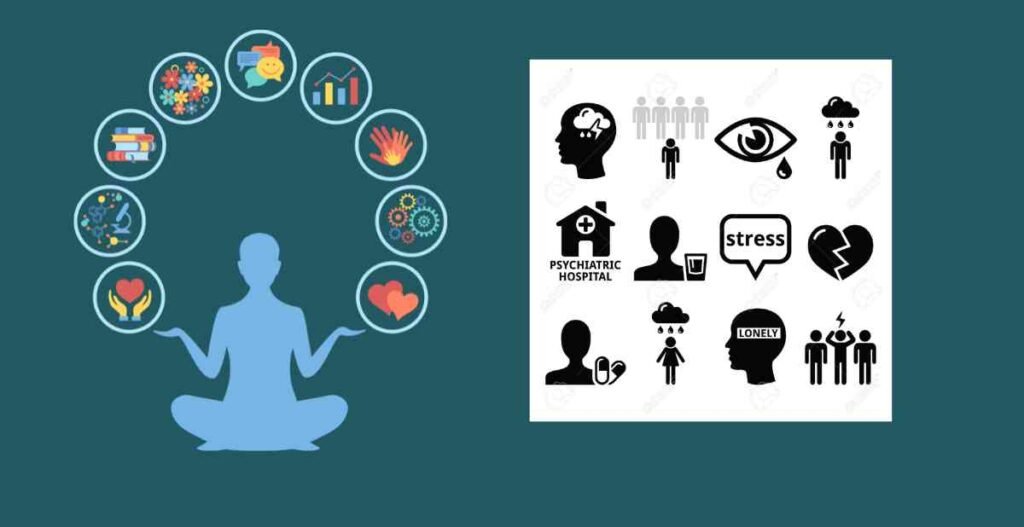
Expert Predictions for Mental Health Apps
- Wider Accessibility: Experts predict that mental health apps will become more accessible, reaching diverse populations and offering multilingual support.
- Integration into Healthcare Systems: There is an expectation that these apps will become an integral part of standard healthcare offerings, potentially covered by insurance providers.
Table: Predicted Advancements in Mental Health Apps
| Advancement Area | Description | Expected Impact |
|---|---|---|
| AI Personalization | Tailored mental health interventions based on user data | Enhanced effectiveness of self-help tools |
| VR/AR Therapies | Immersive therapeutic experiences | Improved engagement and treatment outcomes |
| Biometric Integration | Use of physiological data for mental health insights | More accurate mental health monitoring |
| Data Security | Enhanced protection of user data | Increased trust and app usage |
| Ethical AI Use | Responsible use of AI in mental health care | Safeguarding user autonomy and privacy |
Conclusion
Mental health apps, as a part of the supplemental therapy toolkit, have the potential to transform the landscape of mental health care. By bridging gaps in traditional therapy and offering innovative ways to manage mental well-being, these apps play a crucial role in the modern approach to mental health care. However, it’s essential to use them judiciously and in combination with professional guidance.